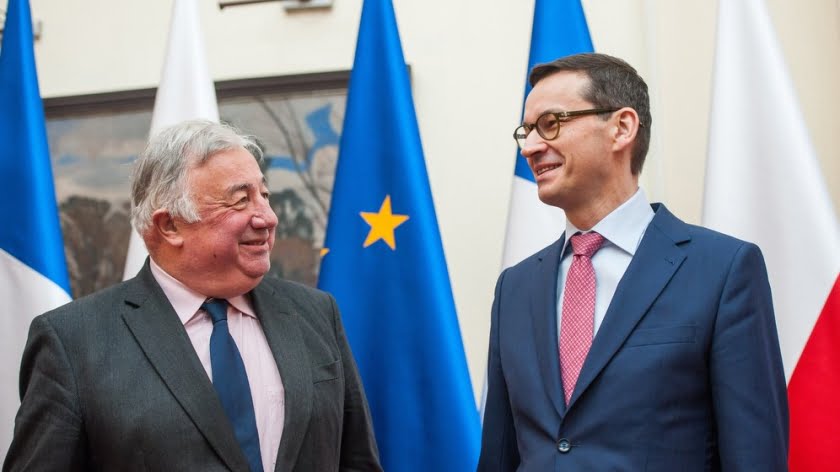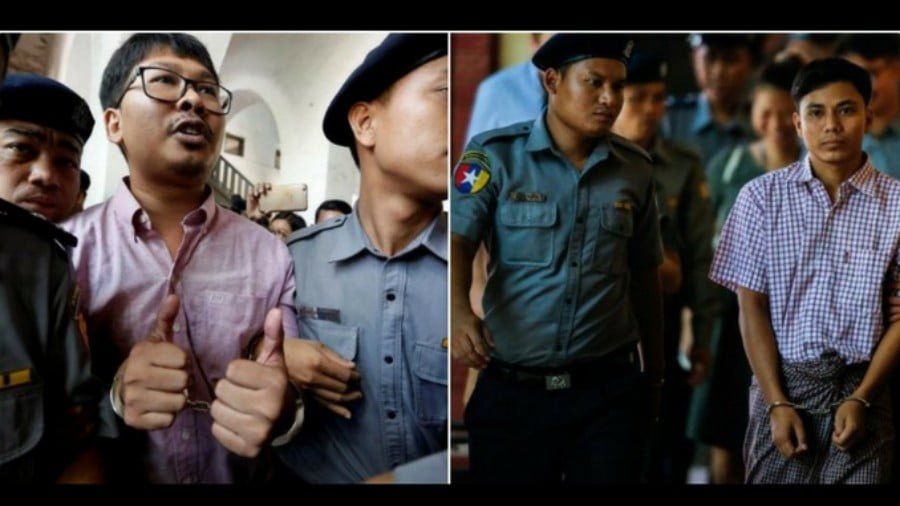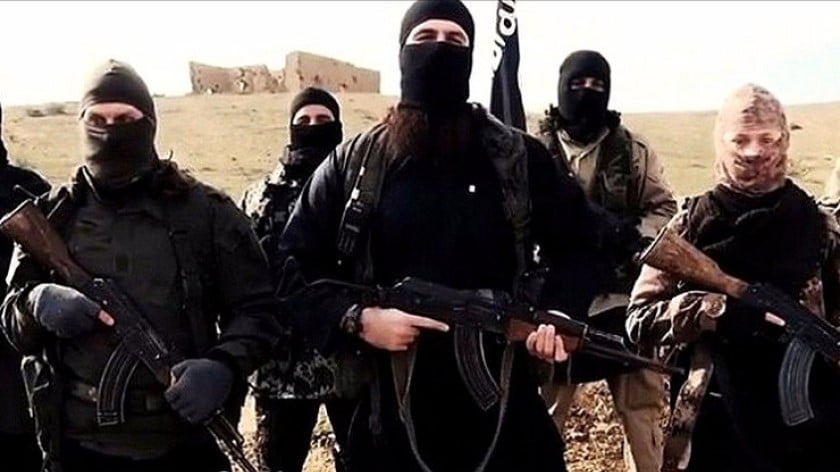9/11 and the Unsolvable Afghan Drama
Sixteen years after 9/11, and the subsequent US bombing that toppled the Taliban, where do we stand?
Osama bin Laden is no more. Al-Qaeda is not in Afghanistan but swarming Idlib province in Syria, metastasized into Hayat Tahrir al-Sham (HTS), the former Jabhat al-Nusra; 30,000 jihadis with combat experience who absorbed brigades from other “moderate rebel” outfits. The Taliban de facto control over 60% of Afghanistan.
The recently announced Trump administration mini-surge (4,000 soldiers on top of the current 11,000) is not likely to change facts on the ground, no more than Erik Prince’s original plan, which was to deploy a private army. After the new surge was announced, Prince actually revealed that National Security Advisor H.R. McMaster had “originally asked for an additional 70,000 to 80,000 troops.”
Now compare the strategy of a Pentagon-based solution for a “win” (Trump’s own word) with Beijing’s.
Chinese Foreign Minister Wang Yi in late June of this year brokered a deal between Pakistan and Afghanistan for the establishment of a crisis management mechanism, which China will support, enabling it to act as a mediator between Kabul and Islamabad. Once that’s achieved, Yi arguably will aim at rebuilding the much plagued Quadrilateral Cooperation Group, composed of Afghanistan, Pakistan, China and the US.
Trilateral Af-Pak-China talks – which will be held in Beijing later this year – were sealed last week during Pakistani Foreign Minister Khawaja Asif’s first trip abroad to, where else, Beijing. The talks will center on how to negotiate with the Taliban – in a vivid contrast with the Trump administration’s Pentagon strategy.
What’s extraordinary is that Yi praised Islamabad’s efforts in fighting terrorism only a few days after the BRICS summit in Xiamen, where China was among the members declaring Lashkar-e-Taiba and Jaysh-e-Mohammad – both Pakistan-based – as terrorist organizations.
For his part, popular Pakistan opposition leader Imran Khan, leader of the Terheek-e-Insaf, the party ruling the ultra-sensitive northwestern province (which borders Afghanistan) privileges Af-Pak dialogue and open borders.
And this while Islamabad is actually building a fence along the huge 2,600-kilometer, extremely porous border (after all, they’re like Pashtun cousins on both sides). The rationale is to improve the counterterrorism drive. Yet Kabul is firmly against it – as Afghans fiercely contest the British Empire’s Durand line.
Khan’s outlook reflects a large swathe of Pakistani popular opinion, for which the best road map ahead for AfPak is not increased US military intervention, but an all-encompassing political process.
In its role as mediator, Beijing is carefully wading into a minefield which also raises the prospect of added frictions with India.
The majority popular perception in Pakistan, substantiated or not, is that terrorist attacks – most of them, by the way, in Khyber Pakhtunkhwa – originate in Afghanistan and are “controlled” by India.
New Delhi actively competes with Beijing with substantial investments in Afghanistan, not only in reconstruction projects but mostly in a key plank of India’s connectivity strategy; the $550 million trilateral deal, with Afghanistan and Iran, to develop Chabahar port, which is to be configured as the hub of an embryonic Indian Southern Silk Road bypassing Pakistan.
Pakistan is allied with China – and the destination of a key plank of the New Silk Roads, a.k.a. Belt and Road Initiative (BRI); the China-Pakistan Economic Corridor (CPEC). Beijing very well knows Islamabad cannot accept either a pro-India government in Kabul or an uncontrollable Taliban back in power.
The Taliban, for their part, know they are winning cross-country (even though not in the main urban centers). They have no pressing reason to come to the negotiating table; and when they do, they will want a substantial piece of the action.
TAPI strikes again
This piece of the action happens to concern one of Pipelineistan’s favorite soap operas, which I’ve been following for years now; the $10 billion Turkmenistan-Afghanistan-Pakistan-India gas pipeline (TAPI).
Lately, there’s been some movement. Kabul has come up with an engineering design for its TAPI stretch. Islamabad is engaged in surveying work and “detailed engineering” is in progress.
TAPI’s endless soap opera is still the only good bet for Turkmenistan to boost export of its natural gas wealth. A Trans-Caspian pipeline, thanks to the deal-making incompetence of the European Union, remains even more unfeasible.
Still, no one knows if TAPI will ever happen; the latest completion date is 2020. It’s always crucial to remember that TAPI was an American dream way back in the first Clinton administration, when the Taliban were accommodated as US allies, even visiting Houston to discuss energy deals.
Pentagon or SCO?
China’s Afghan policy is carefully steered by Chinese State Councillor Yang Jiechi – who got a special briefing from US Secretary of State Rex Tillerson after the Trump administration mini-surge was announced. The policy follows three key vectors.
The first one is counter-terrorism – one of main drivers of the Shanghai Cooperation Organization (SCO). Under current circumstances, that means a concerted regional fight against any possible expansion in Central Asia by Daesh, a.k.a. ISIS-K (“ISIS-Khorasan”).
The second concerns sizeable Chinese investments in Afghan mineral extraction, something that may literally involve conquering all the marbles, apart from lithium and copper at the Mes Aynak mining project.
The third, overarching vector is connectivity, with Afghanistan, in the intersection of Central and South Asia, ideally positioned as a key BRI node. Cargo trains from western China are already reaching the northern Afghan border town of Hairatan for a year now.
Russia for its part is not “supporting the Taliban” – contrary to NATO spin. As Sun Zhuanghzi, secretary-general of the SCO Research Center under the Chinese Academy of Social Sciences may attest, what has been developing over annual SCO summits since at least 2002 is a common position by the Russia-China strategic partnership; the Taliban must imperatively be included in a national Afghan reconciliation process. Especially after the Taliban made public their support for foreign infrastructure investment – railway connectivity, TAPI, even Mes Aynak – as long as they are in the interests of the Afghan people.
Incorporating the Taliban into the peace process also implies they must fight against a Daesh, a.k.a. ISIS-K (“ISIS-Khorasan”) surge, something that is already in effect.
And this all-Asian Afghan solution must be pursued under the umbrella of the SCO, of which Russia, China, India and Pakistan are members and Afghanistan is an observer and future full member.
It’s no wonder that the Pentagon mini-surge in Afghanistan tends to be interpreted across Eurasia – especially in China, Russia, Iran and Pakistan – under two main vectors;
- The possibility for the US of still grabbing a piece of that fabulous, arguably $1 trillion-worth of mineral/natural resource wealth alluded to by Trump, and pursued by both China and Russia.
- A forward military base attempting to harass/interfere/thwart the New Silk Roads/BRI and Eurasia integration – part of a wider, complex economic war against Eurasian poles Russia, China and Iran.
None of this has to do with the Global War on Terror (GWOT), which the Obama administration rebranded as Overseas Contingency Operations (OCO). Realpolitik though now dictates that any solution in the dramatic Afghan chessboard for what, on the US side, translates into a 16-year old war, will have to involve China, Russia, India, Iran and Pakistan.
So these are the high-level stakes in Afghanistan, with 9/11 a distant memory; a Pentagon solution, or an all-Asian solution.
By Pepe Escobar
Source: Asia Times







